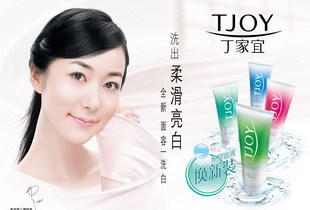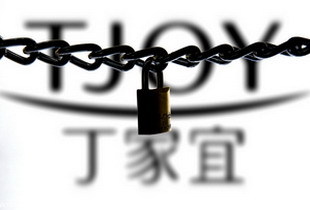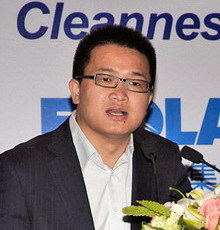
|
Editor's note: The decision of French beauty firm Coty to halt sales of TJoy products has taken many in China by surprise. TJoy, which was once the most popular Chinese skincare brand, is now expected to vanish from the market only three years after its acquisition by Coty. The issue highlights a disturbing trend of foreign corporations, such as Coty, seeking to acquire well-known Chinese domestic brands only to discontinue them. Why aren't domestic brands succeeding within multinational firms? And what does the future hold for China's iconic brands? |

 |
1995 - Professor Ding Jiayi and Taiwanese entrepreneur Chuang Wen-yang establish skincare brand TJoy in China. 2010 - TJoy becomes the most popular brand in China's sunscreen market. According to AC Nielsen, TJoy occupied 15 percent - the largest share - of China’s sunscreen market, valued at about $600 million annually. |
 |
December 2010 - French company Coty Inc and TJoy Holdings Ltd sign a purchase agreement for $385 million. 2012 – Just over a year after it was acquired by Coty, TJoy profits plunge 50 percent. |
 |
March 2014 - Coty reports a record net loss of $253.3 million, or 66 cents per share, in the third quarter, after its efforts to revamp its TJoy business in China did not produce the expected cash flow. June 6, 2014 - Coty announces on its website it will halt sales of TJoy products to focus on international brands that have more growth potential in China. |

|
TJoy is hardly the first Chinese brand to fade from the market after being acquired by a global conglomerate. Well-known Chinese companies – such as Meijiajing, Panda, Mininurse and Dabao - were gradually edged out and finally disappeared shortly after alliance with global giants. |
|
Mininurse was acquired by L'Oreal in 2003, and later the brand seemed to be scrubbed out. |
||
|
American giant Kodak ended the unsuccessful four-year partnership with Lucky Filmsin 2003. |

 |
Li Zhiqi, chairman of CBCT Future Marketing Consulting Group "Regarding industry protection, I think the government should consider making some favorable policies for private enterprises so that they won't go bankrupt. Moreover, foreign enterprises manufacturing chemicals for domestic use constantly acquire local name brands, especially ones in the middle or high-end market. Some international enterprises have taken up over 50% of the market share in China - will they violate the industrial monopoly law if they come to acquire Chinese middle and high-end brands of household chemicals? Chinese anti-monopoly agencies should launch an investigation." |
 |
Feng Jianjun, cosmetics industry analyst "Many foreign household chemical enterprises acquired local brands without an in-depth research of the Chinese market. And they failed to integrate local brands into their own international cooperation system due to significant differences in ways of thinking and sales strategy, etc. That was how they killed the vitality of acquired local brands. At the same time, these foreign enterprises didn't value the brands they acquired, which deflated the original start-up team." |
 |
Zhang Yanlin, research director with CIConsulting "As the household chemicals industry is becoming mature and developing continuously, the competition is growing fiercely. At the time when international household chemical giants were busy with business acquisition, our local household chemical brands needed to re-examine their own strengths and make adjustments in competition strategies so as to maintain their competitiveness and profitability, and not to be acquired." |
 |
Zhou Liangwen, deputy general manager of Prominent Human Resource Management Consutanta Co,Ltd "Facing great pressure and fierce competition, some local household chemical enterprises have made remarkable achievements in the recent years. Take Zhejiang NICE group and Guangzhou Liby group for example, they are doing fine in the competition with the international household chemicals giants and have taken the lead in the detergent market. I think their success can be attributed to good opportunity, maximizing strengths, flexible mechanism, spirit of hard work and timely response to the domestic market. Nevertheless, the international acquisition will continue. Chinese household chemical enterprises should work on innovation and competitiveness. There's a long way to go to build a strong brand." |